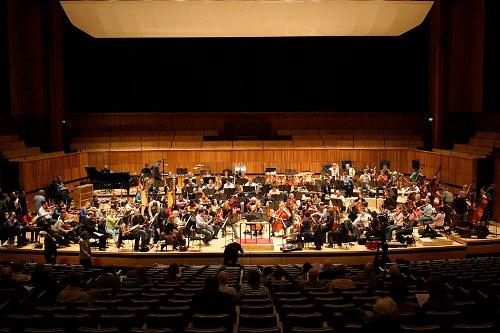
An organization and methods engineer submitted this report after visiting the Royal Festival Hall:
For considerable periods the four oboe players had nothing to do. Their numbers should be reduced, and the work spread more evenly over the whole of the concert, thus eliminating peaks of activity.
All the twelve violins were playing identical notes. This seems unnecessary multiplication. The staff of this section should be drastically cut; if a large volume of sound is required, it could be obtained by means of electronic amplifiers.
Much effort was absorbed in the playing of demisemiquavers. This seems to be an unnecessary refinement. It is recommended that all notes should be rounded up to the nearest semiquaver. If this were done it would be possible to use trainees and lower grade operatives more extensively.
There seems to be too much repetition of some musical passages. Scores should be drastically pruned. No useful purpose is served by repeating on the horns a passage which has already been handled by the strings. It is estimated that if all redundant passages were eliminated, the whole concert time of two hours could be reduced to twenty minutes, and there would be no need for an interval.
The Conductor agrees generally with these recommendations, but expresses the opinion that there might be some falling-off in box-office receipts. In that unlikely event it should be possible to close sections of the auditorium entirely, with a consequential saving of overhead expenses — lighting, attendants, etc.
If the worst came to the worst, the whole thing could be abandoned and the public could go to the Albert Hall instead.
— From NPL News 236, 17 (1969)
